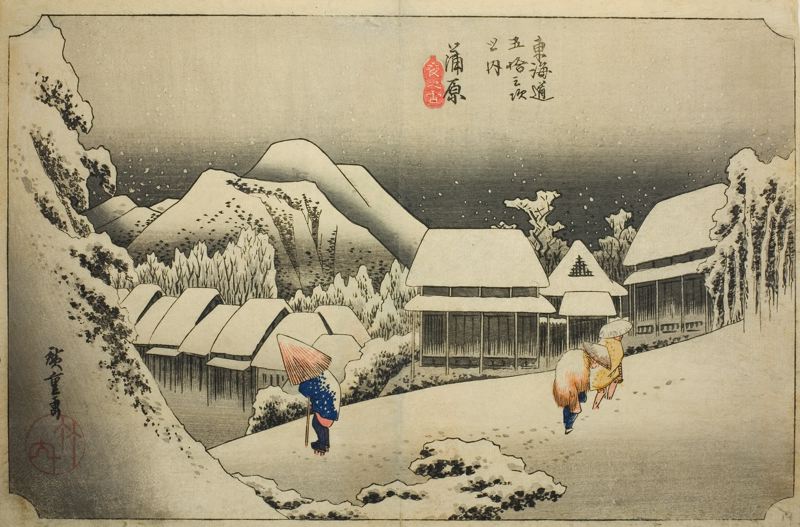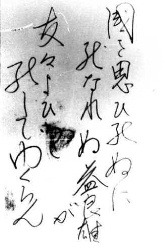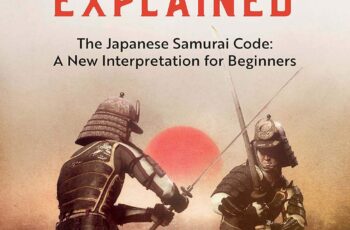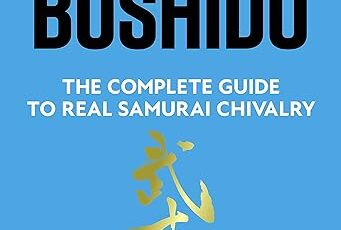The man who would be a warrior considers it is the most basic intention to keep death always in mind, day and night, from the time he first picks up his chopsticks in celebrating his morning meal on New Year’s Day to the evening of the last day of the year. -Daidoji Yuzan
Remembering death sits as the cornerstone of Bushido philosophy. During Japan’s various warring periods, samurai had to face the reality of death on a regular basis. However, this wasn’t anything unusual at any level of society. Death was a familiar neighbor. People died of disease, injury, and war. People killed their livestock to eat. People tended the dying within the family and neighborhood. It’s not like modern life where death is distant: relegated to the old in nursing homes or the sick in hospitals. Because of this, we tend to lose our sense of time, of how short life is. We don’t experience death directly and regularly. Ironically, without death, we can’t live well. And this is what Yuzan points to with his advice to remember death all year.
You will die. So will your friends, family, enemies, and pets. This realization isn’t something negative. It provides a call to live your life well, with gratitude, virtue, and mindfulness. Daily life becomes a dream; the minutes, hours, and days flow past with the routine of work and normal life. Few of us wake before we meet death. Waking doesn’t mean not living normal life and not going to work. Waking means meeting death each day and living each moment as if it is your last. Too often people understand that phrase “living each moment as if it is your last” as “you only live once” and “fear of missing out,” but both of these mistake the point of waking.
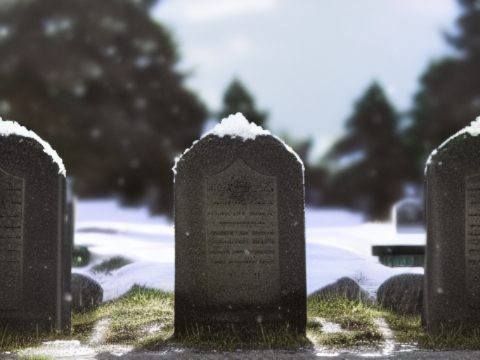
Waking means living a virtuous life of service to others, living in gratitude, curiosity, and wonder. Remembering death pushes you to develop character. As Yuzan wrote:
When death is held constantly in mind and this world is seen in its triviality, the greed in one’s heart will weaken as a matter of course, and the squalid tempers of avarice and selfishness will not so much intrude themselves. For this reason it is said that even one’s character will improve.
What people consider important–fame, wealth, power–fades from importance when you understand death. Of course, there is a danger of falling into nihilism, but this is a misunderstanding of what it means to remember death. Nihilism is the idea that life has no meaning. But life does have an inherent meaning: to live and serve. Nihilism is an inward, selfish perspective; nihilism works against the development of character Yuzan and other Bushido writers focus upon as the natural outcome of understanding death. However, they didn’t have the modern malaise of purposelessness to contend with. That purposelessness results from a society that doesn’t value the discipline of cultivating character and virtue. These two words, after all, feel quaint and out-of-step.
Yet, cultivation of character offers a good sense of purpose. It comes from an understanding of death as Yuzan explains. Character deals with how you relate to yourself, objects, the environment, and to other people. From the Bushido perspective, virtue contains quietude, loyalty, courage, self-control, compassion and service, and life-long learning. Within each of these sits death. You practice quietude, measuring your words, because life is too precious for wasted words and misunderstandings. Words have value and, therefore, shouldn’t be wasted through chatter or on people who do not value your words and time. You practice loyalty, which today would mean loyalty to your principles and to family and friends, because life is too short to create many of these bonds. Loyalty to people means sticking with them, even when it becomes difficult. Too often people throw away relationships because those relationships have become challenging. Too often people throw away relationships because they follow their fickle emotions. Emotions change too frequently to provide any sort of foundation. Courage matters because living a principled life requires bravery, bravery to stand against the poisonous aspects of your culture. Courage means admitting when you are wrong, facing your need for self-growth, and facing your ugliness inside. Few other acts in life are as brave as facing your own ugliness, sitting alone with it, and accepting that ugliness so you can transform it. Compassion and service are underpinned by death: everyone suffers and dies. Once you realize this, the social trifles that used to trouble you no longer trouble you. The little irritations people do do not matter against the reality of death. Finally, life-long learning seeks to instill wisdom into all the other virtues. The realization of death gives impetuous to practice and to learning. Time’s too short to waste.
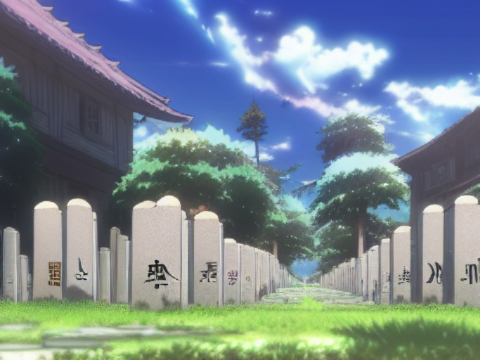
 Remembering death everyday of your life seeks to prepare you for the final encounter. It seeks to make each moment you hand death a gem. To polish the gem, you have to learn and practice:
Remembering death everyday of your life seeks to prepare you for the final encounter. It seeks to make each moment you hand death a gem. To polish the gem, you have to learn and practice:
Learning is to a man as the leaves and branches are to a tree, and it can be said that he should simply not be without it. Learning is not only reading books, however, but it is rather something that we study to integrate with our own way of life. –Takeda Shingen
Learning means reading and putting what you’ve learned into practice. Unfortunately, many people don’t read. According to Pew Research, a significant number of people (see Pew’s graphic) do not read even a single book in a year. The reading rate in the US has also fallen to an average of 12.6 books a year according to Gallup. Reading offers the best, in-depth way to learn. Time is scarce, but reading has the best return on investment. Reading offers a way to remember death by slowing down to absorb information or to develop your compassion by reading fiction. While reading isn’t the end-all to learning, it is a critical part. US General Mattis wrote:
If you haven’t read hundreds of books, you are functionally illiterate, and you will be incompetent, because your personal experiences alone aren’t broad enough to sustain you.
Your experience is singular and limited. It wastes your time to relearn through experience what other people have worked out and refined over the centuries. Experience is also harsher teacher than books. It’s foolish to fail to take advantage of wisdom freely offered just because you fail to read. Learning and the practice of the other virtues ought to be underpinned by death.
Remembering death will shift how you consume entertainment. If you understand death to your bones, you will start to consume entertainment with more intention and not tolerate lower-quality stories. After all, consuming a poor story takes time away from consuming a better story. Each minute you live matters. Any one of them could be your final moment. So use now well.
References
Gelles-Watnick, Risa; Perrin, Andrew (2021) Who doesn’t read books in America? Pew Research Center. https://www.pewresearch.org/fact-tank/2021/09/21/who-doesnt-read-books-in-america/
Jones, Jeffrey (2022) Americans Reading Fewer Books Than in Past. Gallup. https://news.gallup.com/poll/388541/americans-reading-fewer-books-past.aspx
